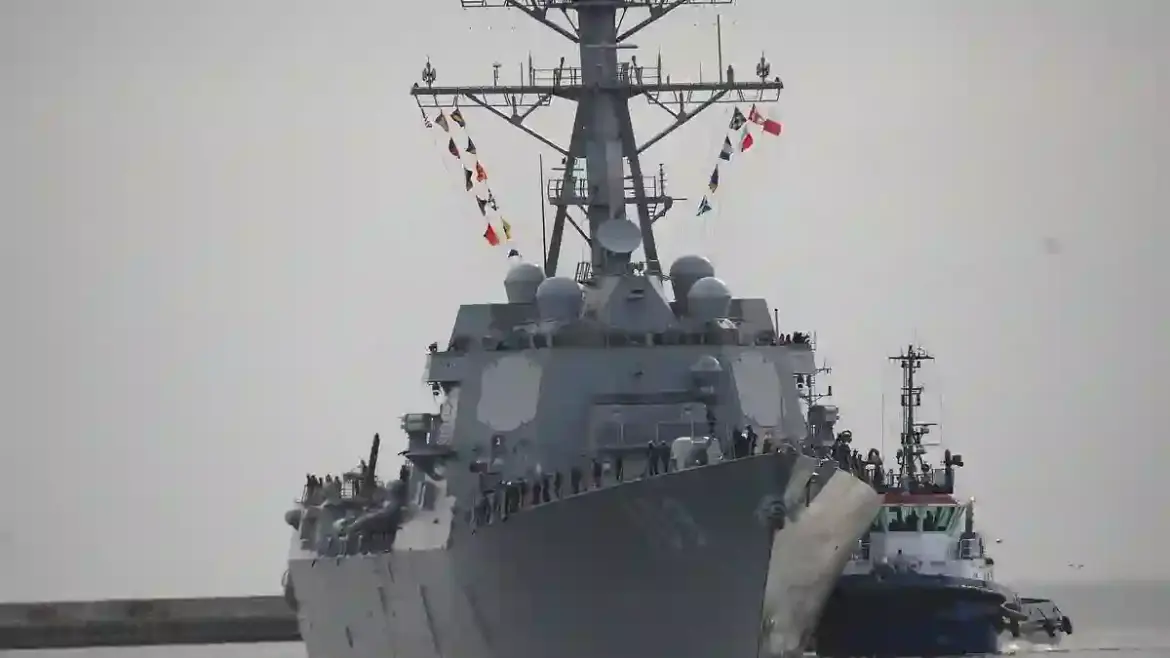The waters of the southern Caribbean have become the latest stage for escalating tensions between the United States and Venezuela. On Thursday, two Venezuelan F-16 fighter jets conducted a close flyover of a US Navy destroyer, signaling an aggressive show of force amid ongoing confrontations between the two countries.
Pentagon Confirms Provocative Maneuver
According to the Department of Defense, the aircraft came directly from Nicolás Maduro’s regime.
The Pentagon described the incident as a deliberate attempt to disrupt US counter-narcotics and counter-terrorism operations.
“This highly provocative move was designed to interfere with our counter-narco-terror operations,” the Pentagon said in a statement Thursday evening.
“The cartel running Venezuela is strongly advised not to pursue any further effort to obstruct, deter, or interfere with operations carried out by the US military.”
The US warship involved, the Jason Dunham, did not retaliate or engage the Venezuelan jets, as reported by The New York Times.
Context: Trump’s Recent Strike Against Venezuelan Cartel
The flyover comes just two days after President Donald Trump ordered an airstrike on a Venezuelan cartel boat, reportedly killing 11 members of the Tren de Aragua drug organization.
While it remains unclear whether the Venezuelan jet activity was a direct response, the timing adds fuel to the already heated confrontation.
The Jason Dunham is part of a small fleet of warships and surveillance planes assembled by the Pentagon to support ongoing counter-narcotics operations in the region.
US Officials Back Aggressive Action
Secretary of State Marco Rubio has publicly endorsed Trump’s tough stance, arguing that past efforts to seize drugs from cartels have failed to deter criminal activity.
“What will stop them is when you blow them up, when you get rid of them,” Rubio said on Wednesday.
Meanwhile, Attorney General Pam Bondi highlighted the ongoing crackdown on Maduro-linked drug operations, announcing a $50 million reward for information leading to his arrest.
Bondi emphasized that cocaine trafficked under Maduro’s watch is often laced with fentanyl, contributing to deadly overdoses in the United States.
Maduro Responds with Defiance
Nicolás Maduro, who the US does not recognize as Venezuela’s legitimate president, characterized the escalating tensions as an “extravagant, unjustifiable, immoral and absolutely criminal and bloody threat.”
He vowed that Venezuela would maintain maximum readiness to defend itself against US pressure.
Maduro, 62, has been under US scrutiny since March 2020, when he was indicted in New York on multiple drug trafficking charges, including narco-terrorism and possession of destructive devices.
Despite these accusations, he has remained in power since April 2013, consolidating control over executive agencies while clashing with the elected National Assembly.
Election Controversies and Political Rivalries
The legitimacy of Maduro’s 2018 presidential victory was widely questioned, prompting opposition leader Juan Guaidó to claim the presidency.
Guaidó received international recognition from lawmakers opposed to Maduro, including an invitation to Trump’s 2020 State of the Union address.
In 2024, Maduro sought a third term and was declared the winner by the election authority aligned with his government.
The opposition, which ran Edmundo González as its candidate, disputed the results, claiming victory of their own.
